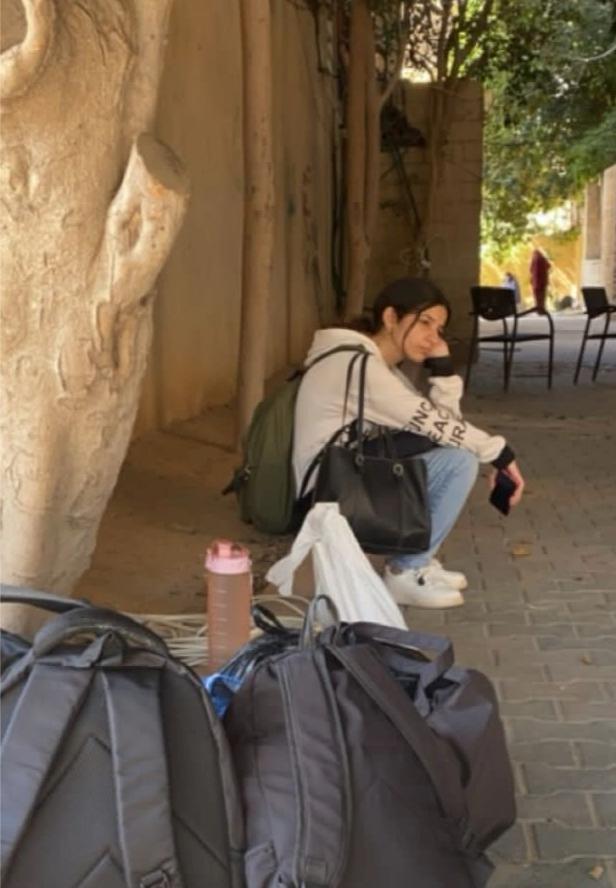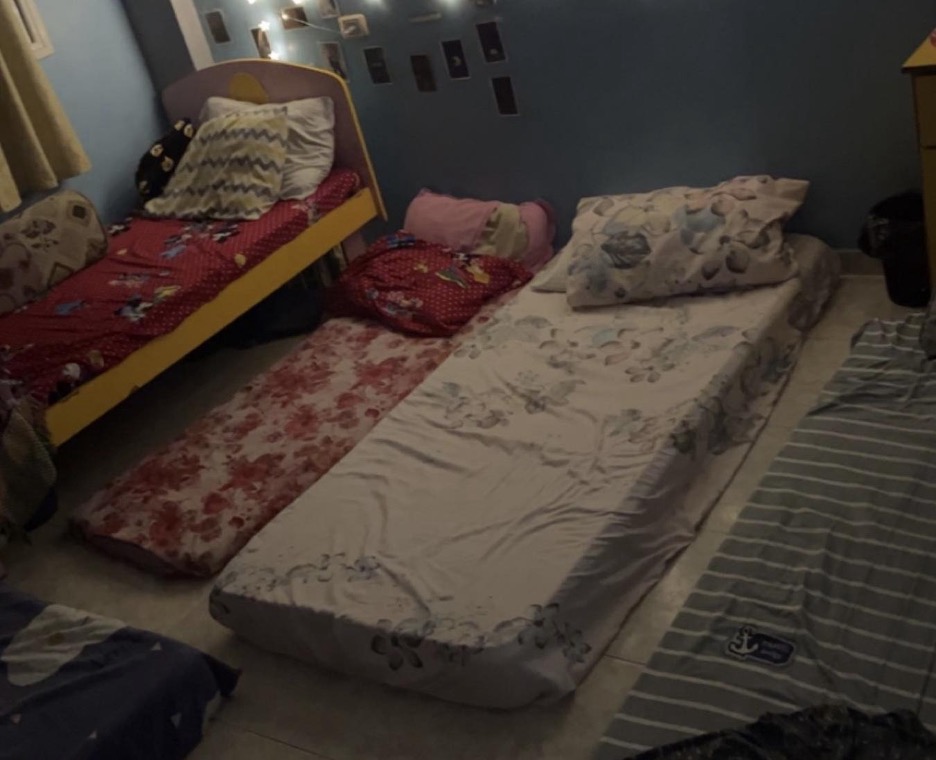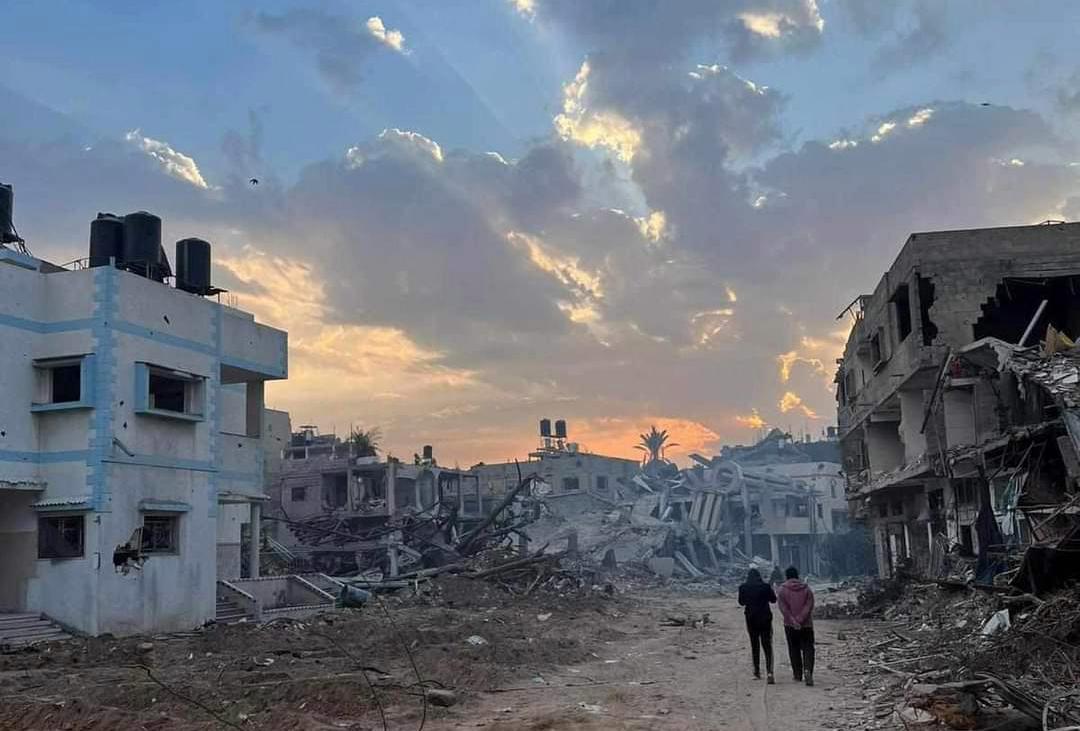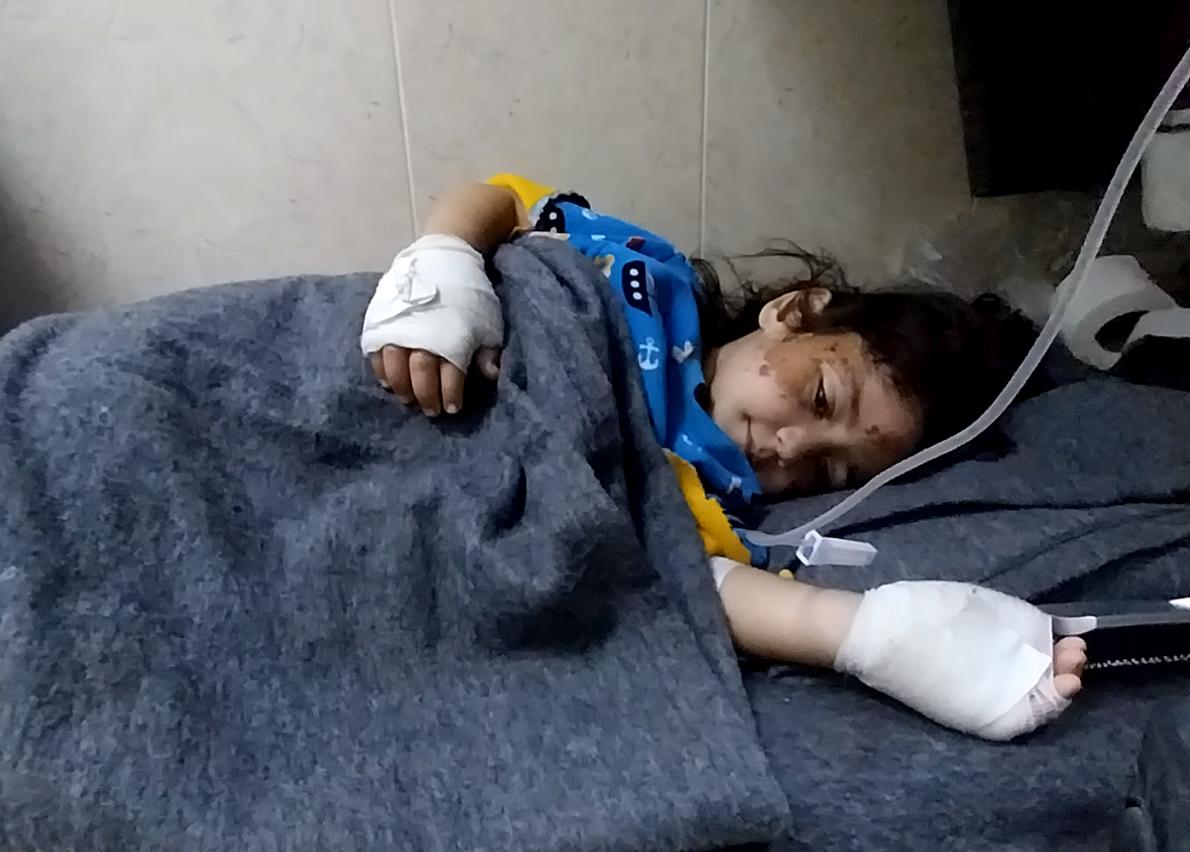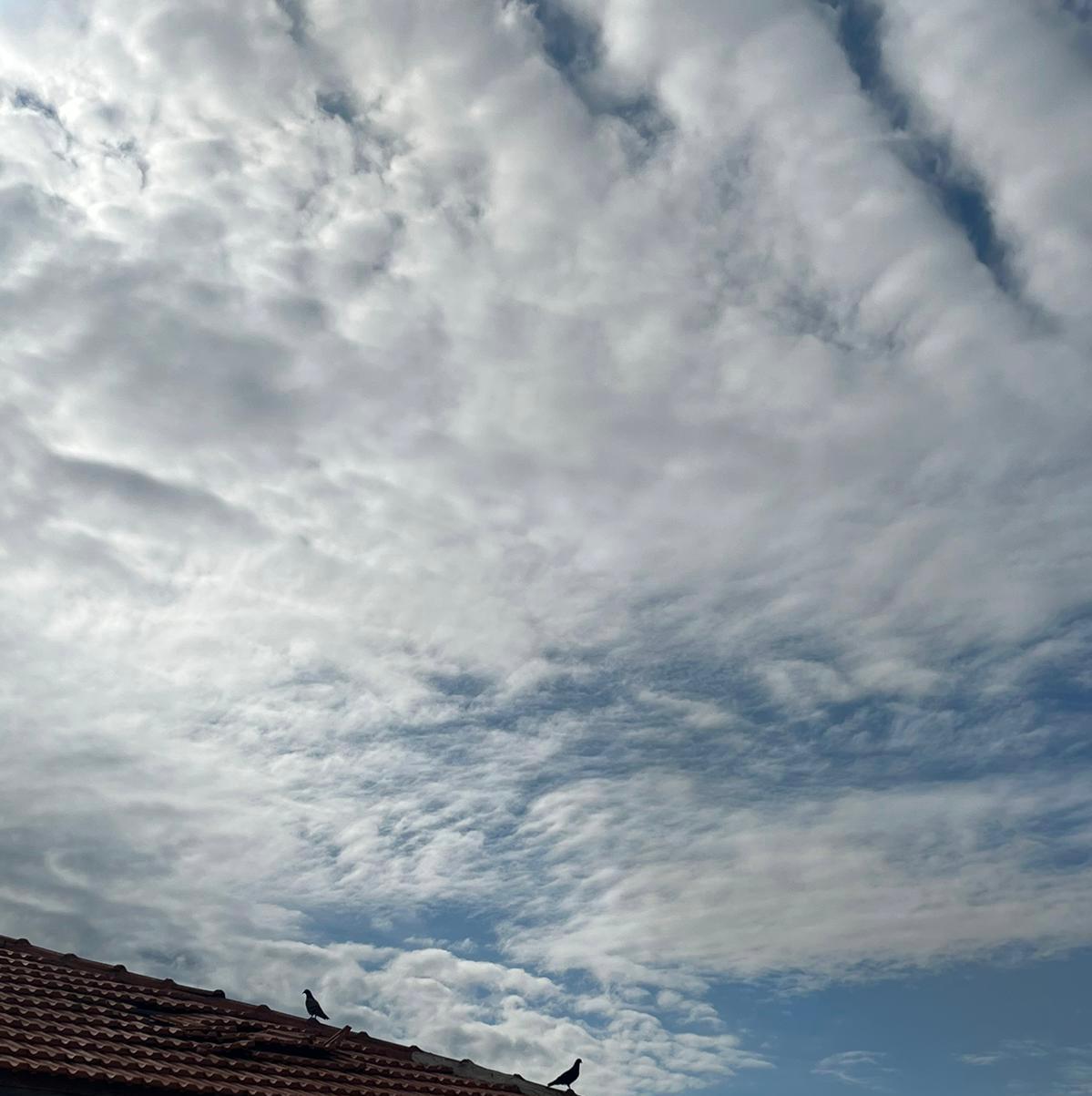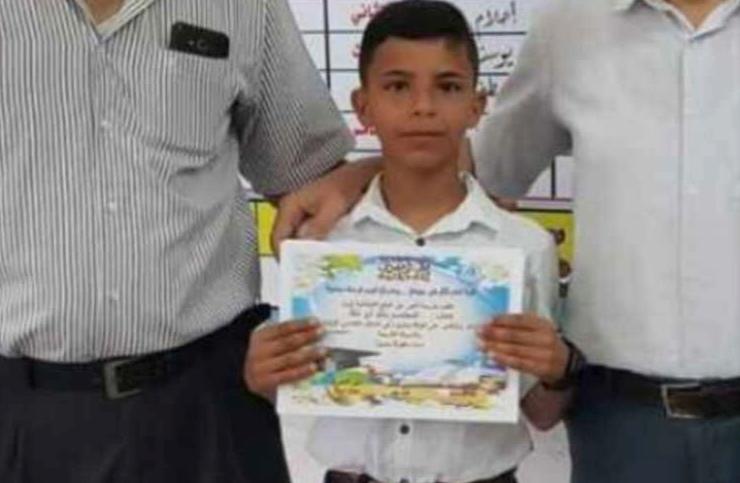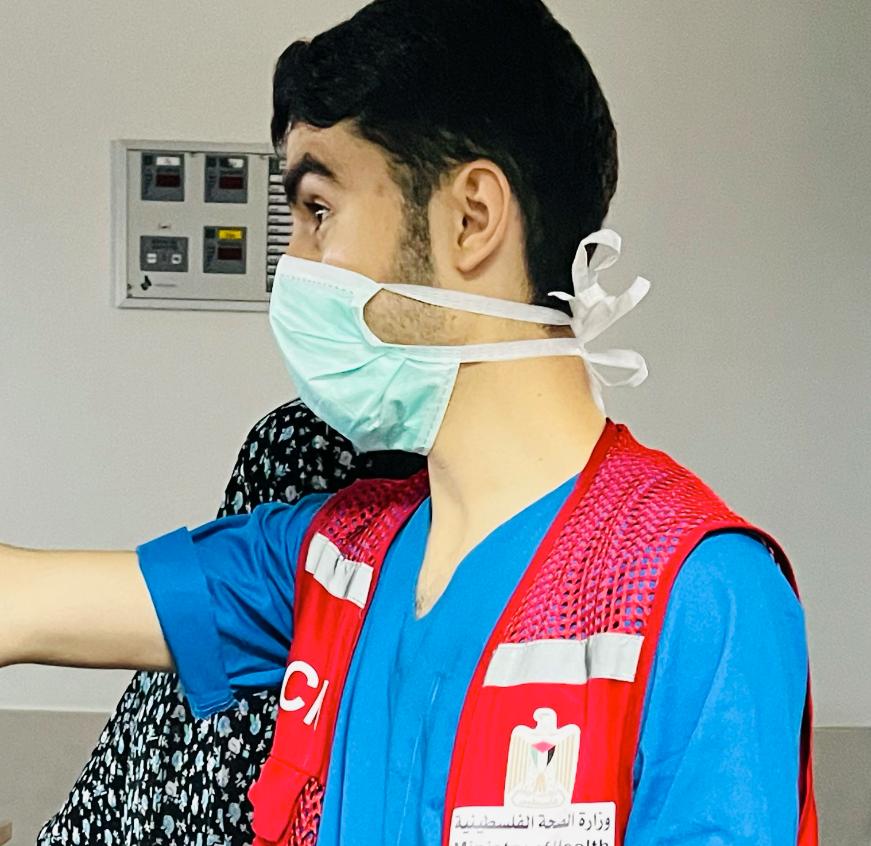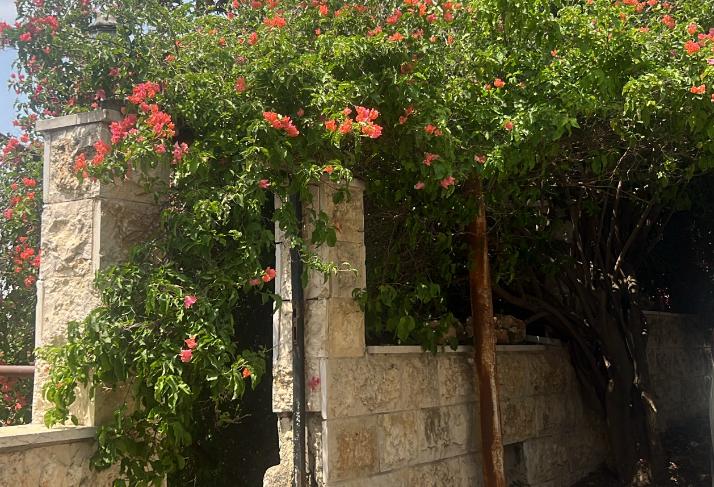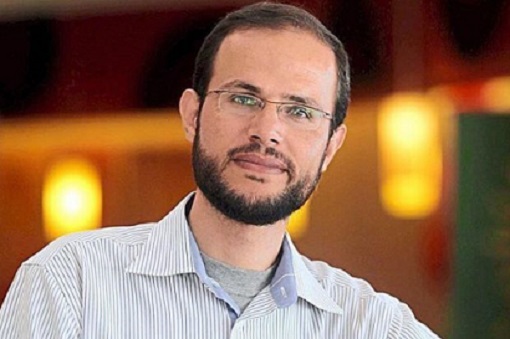 We Are Not Numbers regretfully announces that we have lost yet another member of our family, Rafaat Alareer, who was killed by an Israeli airstrike on December 9. Rafaat was killed in Shajaiya north of Gaza where he was staying with his brother, his sister, and her four children, who were all killed in the attack. He is survived by his wife and six children.
We Are Not Numbers regretfully announces that we have lost yet another member of our family, Rafaat Alareer, who was killed by an Israeli airstrike on December 9. Rafaat was killed in Shajaiya north of Gaza where he was staying with his brother, his sister, and her four children, who were all killed in the attack. He is survived by his wife and six children.
May Rafaat and his family members and all those who have lost their lives in Gaza under Israel’s relentless attack on the Gaza Strip rest in peace.
Rafaat, who was 44 years old, is a renowned poet and professor of comparative literature and creative writing at the Islamic University of Gaza as well as the editor of Gaza Writes Back: Short Stories from Young Writers in Gaza, Palestine (2014), an anthology of 15 young writers in Gaza expressing their experience of living under Israel’s siege and blockade following Israel’s 2008-09 offensive “Operation Cast Lead.” Rafaat is also the author of Gaza Unsilenced (2015), a collection of essays, photos, and poetry that documents the pain, loss, and faith of Palestinians under Israeli siege. As one of the co-founders of We Are Not Numbers, Rafaat served as a mentor for young writers in Gaza ever since its inception in 2014.
Alareer earned his Bachelor’s degree from the Islamic University of Gaza, his Master’s earned from University College London, and his doctorate from Universiti Putra Malaysia.
Even though Israel repeatedly asked residents of Gaza to move south to “safe zones,” Rafaat remained committed to staying in his home in Gaza rather than flee under Israel’s constant bombardment, noting that nowhere in Gaza is safe. Rafaat gave frequent updates about the dire situation in Gaza on X (formerly Twitter). His poem If I Must Die, Let It Be A Tale posted on November 1 foreshadowed his own death and evoked hope that the widespread death and destruction in Gaza not be in vain:
If I must die
Let it bring hope
Let it be a tale
The poem has already been translated into many different languages and recorded by prominent artists.
In a post on December 3 on X, Rafaat included a recording of the terrifying sounds of the relentless Israeli bombardment, commenting:
“We could die this dawn. I wish I were a freedom fighter so I die fighting back those invading Israeli genocidal maniacs invading my neighborhood and city…Pray for us. Pray for Gaza.”
We Are Not Numbers has published tributes in the form of poems by Basman Dewari and Mohammed Arafat. Additional tributes to Rafaat Alareer follow below. We will continue to add tributes as we receive them.
Pam Bailey
Refaat was integral to the launch of We Are Not Numbers. We needed a writing coach in Gaza to work with newly accepted writers, to be sure they were ready for our mentors. I had heard so many complaints about the teachers there, because they often teach strictly from the book. However, the one teacher who I uniformly heard praises about was Refaat Alareer. He was a tough critic, no doubt about it. But it was because he was so committed to his students, and because he was so passionate about both the language and its literature.
And in the process of creating WANN and mentoring our writers, he became my mentor as well. There was a time when I became a target of a vicious online attack just as he recently experienced for being so honest in his views, and he was my counselor and confidante during those tough times. I will miss you, Refaat!! Your memory and legacy will live on.
Mohammed Arafat
He is one of the reasons why I speak, write poetry and advocate for Palestine in English! His work and coaching gave strength to young Palestinian writers and poets, despite the challenges we face.
Omnia Ghassan
In my second year of English literature, I took a short story course with Dr. Refaat. I hoped the course would be the encouragement I needed to keep going with my writing journey, either in Arabic or English. On multiple occasions, he would misspell my name as Omaima instead of Omnia. Eventually, I just accepted his misspelling.
Years after my graduation, he contacted me to invite me to recite one of my poems at the annual Grand Poetry Festival organized by the English Department at the Islamic University of Gaza. As I waited for my turn to rehearse while sitting on the bleachers, I suddenly heard his voice ring through the speakers, “Omaima, come to the stage!” I rose from my seat, annoyed that he was still mispronouncing my name. When I climbed the stairs to the stage, I looked him in the eye and said loudly, “Omnia! My name is Omnia!” He held my gaze, smiling coyly, and said again, “Hurry up, Omaima!”
Every time I visited my old university and ran into him, he would greet me even from far away with a nod. But a year or two ago, I went to the English festival and saw him. “How are you, Omnia?” he asked. I was confused and sad, actually. I was used to Omaima. It had grown on me. The first time he called me by my name was the last time I saw him… This is a memory I shall hold dearly. Rest in power, Dr. Refaat.
Christa Bruhn
The state of Israel uses the world’s most sophisticated weapons against writers, poets, artists, cartoonists, teachers, and journalists to silence their capacity to bear witness to the reality on the ground in Palestine and uplift their people’s spirits as they face the ongoing dispossession of their homeland. Rafaat Alareer is one of many voices of Palestine targeted for using the power of the pen to challenge the subjugation of the Palestinian people. Like others before him—Ghassan Kanafani, Naj Al-Ali, Sherine Abuakleh—Rafaat’s dedicated service has not only put the inhumanity of Israel’s assault on Palestine into words, but has mentored other writers to add their voice to that testimony. Like those who came before him, his words live on and continue to tell the story of Palestine, a story the world is more eager than ever to hear. Rafaat, your tale is being told, and the world is listening. May there be peace and justice in Palestine so that all people from the River to the Sea may live with dignity.
Younes Alhallaq
Talking about Dr Refaat Alareer is not enough as much as doing what Dr Refaat wanted us to do. He was a wonderful teacher and friend as Dr Refaat was always pushing his students and friends to reveal what the occupation has been trying to hide since its existence on the land, concealing the facts. Dr Refaat taught me to write back for it can be the strongest way to approve your right. This is why Israel hated Dr Refaat’s voice. We loved Dr Refaat and we’ve decided his students owe him to complete his desire to expose this cowardly and barbaric occupation.
Haya Sisalem
I remember the first lecture in We Are Not Numbers with him. He was standing confidently and then he gave us so many secrets that we didn’t know about writing in English.
His smile is everything about him. Every time I write in English, I remember his way of writing. I will work as hard as possible to continue his path and to tell everyone about him.
Khaled El-Hissy
I am very proud to be one of Dr. Refaat’s students. I was and still am his student.
He taught me.
In classes, he didn’t only teach me poetry, drama and Shakespeare courses, but he also taught me academic writing, creative writing, grammar and translation, although he wasn’t my translation professor.
In his classes he also sometimes taught me history, culture and geography. He taught me how to draw even though my drawing was bad. He made me love Tamim al-Barghouti’s poetry.
And maybe most importantly, he made me love and know how to create memes. I never saw a professor uses memes as a method of teaching. He loved memes. He made us love them, too. Sometimes we were meming him and he would love that.
Dr. Refaat always encouraged us to be creative, to think outside the box.
He would tell us to come to the class without researching about the next poem. We would read the poem and discover it in the class. He knew it was difficult for him to do so and he would be mad at us sometimes as it was not easy for us to understand the whole poem without any previous researching.
But he never gave up shaping our creativity.
And to those who were creative? He would reward them with a bonus mark. Only Dr. Refaat’s students know how hard it was to get a bonus mark from him.
I would never forget his facial expressions when he gave me one.
Dr. Refaat was introducing Shakespeare’s Sonnet 18, Shall I compare thee to a summer’s day? And before this sonnet we read a sonnet for Sir Thomas Wyatt, Whoso list to hunt.
He showed us how Wyatt used the meter, the iambic pentameter, to emphasize himself, by stressing the pronoun “I.”
So I applied the same thing to Sonnet 18. Shakespeare unstressed the “thee,” meaning meaning “you” in Modern English, at the intro of the poem, indicating that his addressee is weak.
Shall I compare thee to a summer’s day?
But at the end, he tells the addressee that he will be immortal because Shakespeare mentioned him in his poetry. In this case the “thee” is stressed:
So long lives this, and this gives life to thee.
And Dr. Refaat was like, “Wow, wow. Excellent. One bonus mark for you. One bonus mark.”
I wasn’t happy because of the extra mark, I was happy because I could make him feel happy, a thing students told me was impossible. This incident, making Dr. Refaat proud and happy, encouraged me and my friends to always come prepared to the class and try to think creatively and out of the box as he wanted.
I really miss him. But I don’t believe he is dead. Maybe Israel killed Dr. Refaat. But his inspiration is still within me and within all of his students.
I mean, Dr Refaat still teaches me a lot of things:
He is teaching me how to always be brave even if I’m afraid of something.
He is teaching me that words are very powerful and immortal. Dr. Refaat’s voice reached and encouraged millions of people although he was in Gaza.
He is teaching me how to be kind, generous, and offering help to others even in these times I need help. To be a giver always more than a taker.
If Israel killed Refaat, it had created millions of Refaats. Each one of his friends is a Refaat. Each one of his students is a Refaat. We honor him by continuing this mission.
See also the separate tribute by Malak Alhaw, Dr. Refaat Alareer died. I am telling his story.


